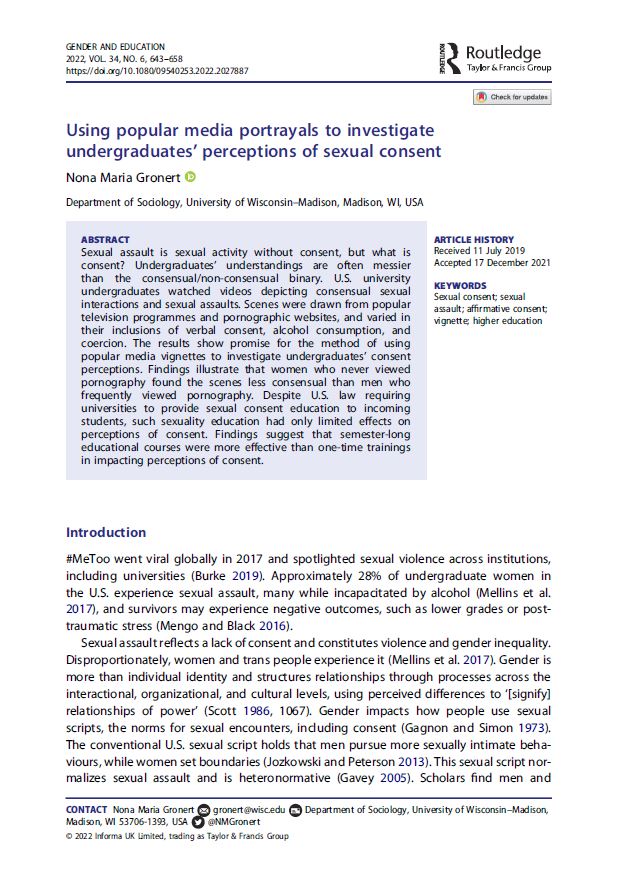Shaping Sexual Behaviors & Sexual Scripts
Using popular media portrayals to investigate undergraduates’ perceptions of sexual consent
 Full Article Title: Using popular media portrayals to investigate undergraduates’ perceptions of sexual consent.
Full Article Title: Using popular media portrayals to investigate undergraduates’ perceptions of sexual consent.
Open Access: No.
Abstract
Sexual assault is sexual activity without consent, but what is consent? Undergraduates’ understandings are often messier than the consensual/non-consensual binary. U.S. university undergraduates watched videos depicting consensual sexual interactions and sexual assaults. Scenes were drawn from popular television programmes and pornographic websites, and varied in their inclusions of verbal consent, alcohol consumption, and coercion. The results show promise for the method of using popular media vignettes to investigate undergraduates’ consent perceptions. Findings illustrate that women who never viewed pornography found the scenes less consensual than men who frequently viewed pornography. Despite U.S. law requiring universities to provide sexual consent education to incoming students, such sexuality education had only limited effects on perceptions of consent. Findings suggest that semester-long educational courses were more effective than one-time trainings in impacting perceptions of consent.
Relevance
The study found that “men who frequently viewed pornography considered the scenes [shown in the study] more consensual than women who never viewed pornography.” In other words, university-aged young men who frequently watched pornography are more likely to see consent in a sexual situation than most women.
Citation
Gronert, N. M. (2022). Using popular media portrayals to investigate undergraduates’ perceptions of sexual consent. Gender and Education, 34(6), 643-658. https://doi.org/10.1080/09540253.2022.2027887
